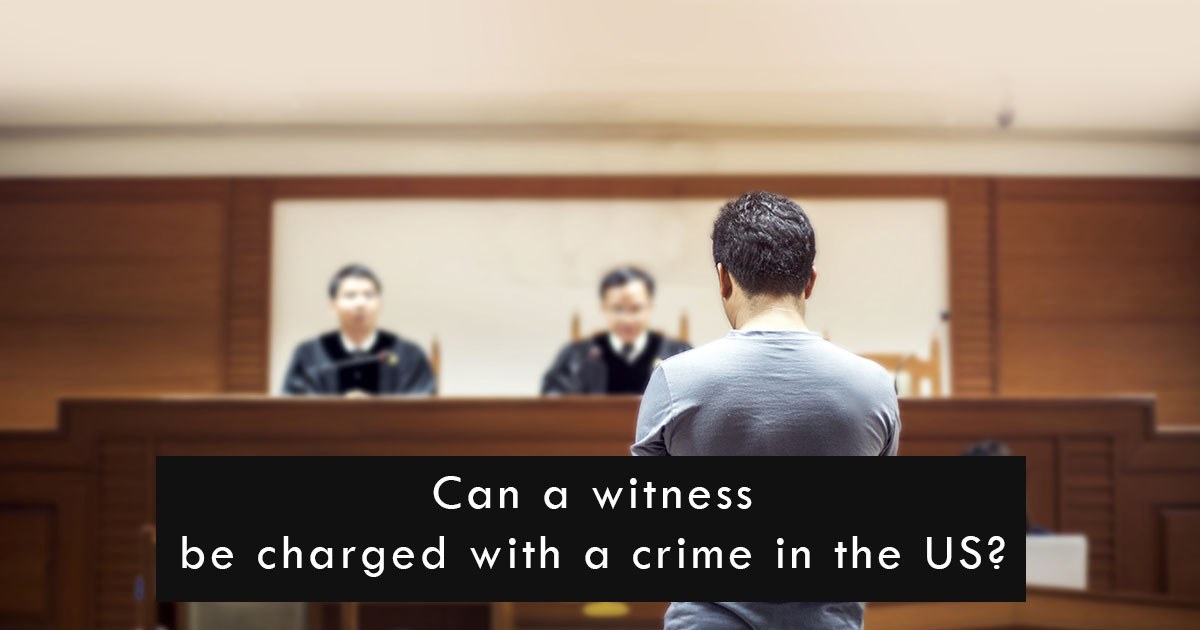The role of a witness in the United States legal system is pivotal, yet it carries with it certain legal complexities. One of the most intriguing questions in this realm is whether a witness can be charged with a crime in the US. This article delves into the legal statutes and precedents governing this aspect, shedding light on the intricate balance between witness rights and legal accountability.
The Legal Status of a Witness
In American jurisprudence, a witness is someone who has knowledge pertinent to a legal case, often obtained through direct observation or experience. Witnesses play a critical role in the judicial process, as their testimonies can heavily influence the outcome of a case.
Witness and the Right Against Self-Incrimination
Central to the discussion is the Fifth Amendment of the U.S. Constitution, which guarantees the right against self-incrimination. It states, “No person… shall be compelled in any criminal case to be a witness against himself…” This amendment allows witnesses to refuse to answer questions that might incriminate them.
However, the protection offered by the Fifth Amendment does not equate to immunity from criminal charges. If evidence emerges (separate from their testimony) showing a witness’s involvement in a crime, they can be legally charged.
Immunity Provisions for Witnesses
To encourage truthful testimony, witnesses may be granted immunity, which comes in two forms:
- Transactional Immunity: This is a comprehensive form that shields the witness from prosecution for offenses related to their testimony.
- Use and Derivative Use Immunity: Under 18 U.S.C. § 6002, this form of immunity prevents the use of the witness’s testimony or any evidence derived from it in prosecuting the witness. However, it does not protect against prosecution from evidence obtained independently.
Witness Tampering and Perjury Laws
Witnesses are legally obligated to provide truthful testimony. Perjury, or lying under oath, is a criminal offense under 18 U.S.C. § 1621. Similarly, witness tampering, which involves influencing a witness’s testimony, is criminalized under 18 U.S.C. § 1512.
Conclusion
In summary, while witnesses are integral to the US judicial process, they are not exempt from legal repercussions. They can face criminal charges if independent evidence implicates them in a crime. The legal framework, including the Fifth Amendment and various immunity statutes, offers protection but also imposes responsibilities. Understanding these legal nuances is crucial for anyone involved in or studying the US legal system.









Leave a Reply